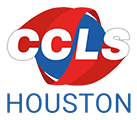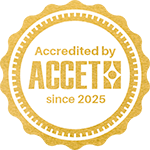
Diagnosing Medicine in Spanish
It is no news that being bilingual is a powerful tool in today’s job market. In Houston alone, the Latino population has dramatically increased, reaching over 40% of the city demographics, while nationally, we are expected to reach 25% by 2050.
However, in some disciplines, being able to understand another language is not only a great addition to one’s resume, but also the difference between good service and an excellent one, particularly when those services are health related. Indeed, research has shown that, when stressed, people tend to lose their capacity to express themselves in an effective manner. If that stressful context also entails being able to communicate in a foreign language, proficiency goes down drastically.
Healthcare providers are used to these kinds of environments. More often than not, they witness how people are sometimes unable to express their symptoms properly, give a complete medical history, or even share their basic personal data during an emergency, or even on a regular visit. This is applicable to some English native speakers, but more so to the non-natives. In this way, a basic understanding of Spanish can be useful to get through several emotional obstacles that can impair communication in such contexts.
Unfortunately, the number of Latinos in the health care workforce is proportionately much smaller than the size that the community warrants (Chong, 2002). Thus,it is very likely that a native Spanish speaker will face an English native that cannot effectively communicate in Spanish. To make things worse, most of the Spanish learning material available for medical professionals consist of long vocabulary lists or endless bilingual dictionaries, which would be helpful if interactions occurred in writing and in a pace that would allow the professional to consult back and forth.
At CCLS Houston, we believe that the best way to learn a language is through interaction, specifically adapted to each scenario. In this way, our Medical Spanish courses are highly practical and role oriented. In our small classes, students will acquire basic grammar knowledge, but will develop listening and oral communication skills needed to address the various complexities of the medical practice as well. In addition, cultural topics are also explained in class, such as different approaches to notions of health, family, body language, etc., working to avoid stereotypes that could hinder the possibility of a successful treatment.


